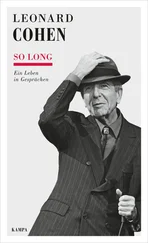-My friend, F. said, you mustn’t feel guilty about any of this.
-Any of what?
-Oh, you know, sucking each other, watching the movies, Vaseline, fooling around with the dog, sneaking off during government hours, under the armpits.
-I don’t feel in the least guilty.
-You do. But don’t. You see, F. said, this isn’t homosexuality at all.
-Oh, F., come off it. Homosexuality is a name.
-That’s why I’m telling you this, my friend. You live in a world of names. That’s why I have the charity to tell you this.
-Are you trying to ruin another evening?
-Listen to me, you poor A——!
-It’s you who feel guilty, F. Guilty as hell. You’re the guilty party.
-Ha. Ha. Ha. Ha. Ha.
-I know what you want to do, F. You want to destroy the evening. You’re not satisfied with a couple of simple comes and a nice poke in the hole.
-All right, my friend, you’ve convinced me. I’m perishing with guilt. I’ll keep quiet.
-What were you going to say?
-Some fabrication of my guilty guilt.
-Well, tell me, now that you started the whole thing.
-No.
-Tell me, F., for Christ’s sake, it’s just conversation now.
-No.
-God damn you, F., you are trying to destroy the evening.
-You’re pathetic. That’s why you must not try to connect anything, your connection would be pathetic. The Jews didn’t let young men study the Cabala. Connections should be forbidden citizens under seventy.
-Please tell me.
-You mustn’t feel guilty about any of this because it isn’t strictly homosexual.
-I know it isn’t, I-
-Shut up. It isn’t strictly homosexual because I am not strictly male. The truth is, I had a Swedish operation, I used to be a girl.
-Nobody’s perfect.
-Shut up, shut up. A man tires in his works of charity. I was born a girl, I went to school as a girl in a blue tunic, with a little embroidered crest on the front of it.
-F., you’re not talking to one of your shoeshine boys. I happen to know you very well. We lived on the same street, we went to school together, we were in the same class, I saw you a million times in the shower after gym. You were a boy when you went to school. We played doctor in the woods. What’s the point of all this?
-Thus do the starving refuse sustenance.
-I hate the way you try to end everything off.
But I broke off the argument just then because I noticed that it was almost eight, and we were in danger of missing the entire double feature. How I enjoyed the movies that night. Why did I feel so light? Why did I have so deep a sense of comradeship with F.? Walking home through the snow my future seemed to open me: I resolved to give up work on the A——s, whose disastrous history was not yet clear to me. I didn’t know what I wanted to do, but it didn’t bother me, I knew that the future would be strewn with invitations, like a President’s calendar. The cold, which hitherto froze my balls off every winter, braced me that night, and my brain, for which I have always had little respect, seemed constructed of arrangements of crystal, like a storm of snowflakes, filling my life with rainbow pictures. However, it didn’t work out that way. The A——s found their mouthpiece and the future dried up like an old dug. What was F.’s part in that lovely night? Had he done something which opened doors, doors which I slammed back in their frames? He tried to tell me something. I still don’t understand. Is it fair that I don’t understand? Why did I have to be stuck with such an obtuse friend? My life might have been so gloriously different. I might never have married Edith, who, I now confess, was an A——!
I always wanted to be loved by the Communist Party and the Mother Church. I wanted to live in a folk song like Joe Hill. I wanted to weep for the innocent people my bomb would have to maim. I wanted to thank the peasant father who fed us on the run. I wanted to wear my sleeve pinned in half, people smiling while I salute with the wrong hand. I wanted to be against the rich, even though some of them knew Dante: just before his destruction one of them would learn that I knew Dante, too. I wanted my face carried in Peking, a poem written down my shoulder. I wanted to smile at dogma, yet ruin my ego against it. I wanted to confront the machines of Broadway. I wanted Fifth Avenue to remember its Indian trails. I wanted to come out of a mining town with rude manners and convictions given to me by an atheist uncle, barfly disgrace of the family. I wanted to rush across America in a sealed train, the only white man whom the Negroes will accept at the treaty convention. I wanted to attend cocktail parties wearing a machine gun. I wanted to tell an old girl friend who is appalled at my methods that revolutions do not happen on buffet tables, you can’t pick and choose, and watch her silver evening gown dampen at the crotch. I wanted to fight against the Secret Police takeover, but from within the Party. I wanted an old lady who had lost her sons to mention me in her prayers in a mud church, taking her sons’ word for it. I wanted to cross myself at dirty words. I wanted to tolerate pagan remnants in village ritual, arguing against the Curia. I wanted to deal in secret real estate, agent of ageless, anonymous billionaire. I wanted to write well about the Jews. I wanted to be shot among the Basques for carrying the Body into the battlefield against Franco. I wanted to preach about marriage from the unassailable pulpit of virginity, watching the black hairs on the legs of brides. I wanted to write a tract against birth control in very simple English, a pamphlet to be sold in the foyer, illustrated with two-color drawings of shooting stars and eternity. I wanted to suppress dancing for a time. I wanted to be a junkie priest who makes a record for Folkways. I wanted to be transferred for political reasons. I have just discovered that Cardinal———has taken a huge bribe from a ladies’ magazine, have suffered a fairy attack from my confessor, have seen the peasants betrayed for a necessary reason, but the bells are ringing this evening, it is another evening in God’s world, and there are many to be fed, many knees yearning to be bent, I mount the worn steps in my tattered ermine.
The long house of the Iroquois must be clear. Length: varied from one hundred to one hundred fifty feet. Height and width: twenty-five feet. Lateral beams supporting a roof made from large pieces of bark, cedar, ash, elm, or pine. Neither window nor chimney, but a door at each extremity. Light got in and smoke got out through holes in the roof. Several fires in the cabin, four families to each fire. Families arranged so that there was a corridor running down the length of the cabin. ‘La manière dont les familles se groupent dans les cabanes n’est pas pour entraver le libertinage.’ Thus le P. Edouard Lecompte, S.J., wrote in 1930, whetting our sexual appetite in his expert Company manner. The long-house setup did little to ‘hinder licentiousness.’ What went on in the dark tunnel? Catherine Tekakwitha, what did you see with your swollen eyes? What juices mixing on the bearskin? Was it worse than a movie theater? F. said: The atmosphere of a movie theater is a nighttime marriage of a man’s prison and a woman’s prison; the prisoners know nothing about it-only the bricks and gates have combined; in the ventilation system the mystic union is consummated: the smells absorb each other. F.’s extravagant observation coincides with something a clergyman told me. He said that on Sunday morning the odor of semen hangs like a damp cloud above the men gathered for chapel at Bordeaux Jail. The modern art-cinema house, made of concrete and velvet, is a joke, which, as F. said, is nothing but the death of an emotion. No marriage in these stark confines, everybody sitting on their genitals because: silver genitals on the screen. Bring back hidden sex! Let cocks again rise and twine like ivy round the gold projector beam, and cunts yawn under gloves and white paper bags of candy, and no naked flashing breasts lure the dirty laundry of our daily lives into the movie palace, deadly as a radar signal, no neorealist patent fucking hang the impenetrable curtains of possibility between each member of the audience! In the gloomy long house of my mind let me trade wives, let me stumble upon you, Catherine Tekakwitha, three hundred years old, fragrant as a birch sapling, no matter what the priests or plague have done to you.
Читать дальше












